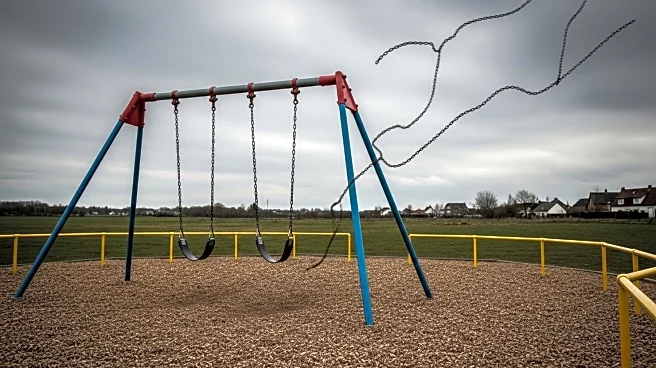What is the story about?
What's Happening?
A BBC investigation has uncovered how Syria's Assad regime used SOS Children's Villages International to facilitate the disappearance of children during the civil war. The documentary, part of a collaborative project, follows the story of Reem al-Kari searching for her son, Karim, one of at least 3,700 children who went missing. The investigation reveals that children of regime opponents were held in orphanages to coerce families or for prisoner exchanges. SOS Children's Villages, a major charity, allegedly knew about these practices but failed to address them adequately.
Why It's Important?
The investigation sheds light on the exploitation of vulnerable children during conflicts, raising serious ethical and legal questions about the role of international charities in war zones. It highlights the need for accountability and transparency in humanitarian operations, especially in regions with complex political dynamics. The revelations could impact the reputation and operations of SOS Children's Villages and similar organizations, prompting calls for reform and stricter oversight.
What's Next?
The documentary may lead to increased scrutiny of international charities operating in conflict zones, with potential investigations into their practices and partnerships. It could also prompt policy changes to ensure better protection for children in war-torn areas. The Assad regime's fall might lead to further revelations and efforts to reunite families with missing children.
Beyond the Headlines
The investigation raises broader questions about the intersection of humanitarian aid and political agendas, highlighting the challenges of maintaining neutrality and integrity in complex environments. It underscores the importance of safeguarding human rights and the ethical responsibilities of organizations working in conflict zones.

















